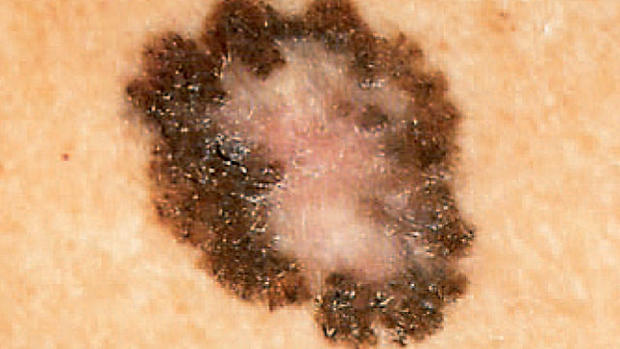Daily sunscreen slows skin aging, even in middle age: Study
Sunscreen is applied by millions daily to stave off sunburn and skin cancer. In what researchers are calling a first, a new study finds using sunscreen every day could significantly stall skin aging, also known as photoaging.
And middle age isn't too late to start, the researchers found.
"The cost-effectiveness of promoting daily sunscreen use based on skin cancer prevention alone is probably substantially higher after accounting for the additional prevention of skin photoaging," wrote the researchers, led by Dr. Adele Green, a professor at the Queensland Institute of Medical Research at the University of Queensland in Australia.
According to the authors, sunscreens and antioxidants have long been touted to prevent skin aging, but no scientific evidence to date has shown they do.
For the new study, published online June 3 in the Annals of Internal Medicine, researchers examined 903 people 55 and younger, to see whether daily sunscreen would stall their aging more than people who used the products at their discretion.
During the study, researchers also tested the anti-aging effects of beta-carotene -- an antioxidant known as a carotenoid -- supplements compared to placebo.
Participants were randomly assigned to four groups: daily use of broad-spectrum sunscreen along with 30 milligrams of beta-carotene, daily sunscreen and placebo, discretionary sunscreen use plus beta carotene, and discretionary sunscreen with placebo.
The study was considered a randomized-controlled trial, the most rigorous type of scientific study.
Daily sunscreen participants used products with a sun-protection factor (SPF) of 15+, and applied it to their head, neck, arms and hands each morning after bathing, and every time they spent a few hours in the sun or sweated profusely.
All were tracked for more than four years. Researchers calculated the daily sunscreen group showed 24 percent less skin aging than those in the discretionary group by study's end. Most of those in the daily sunscreen group ended up using it at least three to four times per week. Sunscreen's anti-aging properties were observed in all participants who used it daily, regardless of age, meaning adults up to 55 were also protected.
No difference in skin aging was seen when comparing daily beta-carotene supplementation with placebo.
The researchers said it was uncertain whether this effect could be seen in adults older than 55 years old.
Green told USA Today that she hopes the new study convinces more people to wear sunscreen.
"It has been a source of frustration for us that for some sections of the community, the sun-safe message does not seem to be getting through," said Green. "We now know that protecting yourself from skin cancer by using sunscreen has the added bonus of keeping you looking young."
Ultraviolet A (UVA) radiation from the sun is thought to be responsible for aging and wrinkling of the skin, according to the Skin Cancer Foundation, while ultraviolet B (UVB) rays are the main culprit behind sunburn. Both increase your risk for skin cancers including deadly melanoma.
Foran extreme example of photoaging, a June 2012 study of a truck driver who had been on the road 28 years shows the heavy aging toll the sun took on the side of his face exposed to the driver's-side window.
Sunscreens that are considered "broad spectrum" under new FDA regulationsprotect against both UVA and UVB rays.
Also under the new rules, a product with an SPF below 15 will have a warning saying it only helps prevent sunburn and does not protect against skin cancer or skin aging.
"This study effectively shows that daily sunscreen can reduce the signs of photoaging and photodamage," Dr. Brundha Balaraman, a dermatology researcher from the Washington University School of Medicine in St. Louis, said to Reuters. She was not involved in the study. "But the key to prevention is to develop these healthy sun-protective habits at a young age," Balaraman added.


